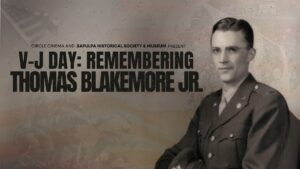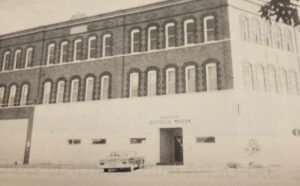Rachel Whitney, Curator,
Sapulpa Historical Museum
In an interview, the “first male born in Tulsa” began to tell his story:
“My mother’s people were full blood Creeks of the Locha-pa-go Talasees family from Alabama. My mother, Lucy, was born at Little Rock, Arkansas, in 1832. Her people were being brought with the second emigration. She was born on the way. This ‘town’ of Creek settled in the valley along the north side of the Arkansas River, where Tulsa is today. This ‘town’ extended ot the Big Bird (Fuswa-Thlocco) settlement where Sand Spring is now.
“My mother told me how they brought the old traditional names and customs with them. Because they settled along the banks of the river, they called the location ‘Tulsey-Lochapaka’ (Luchapago). ‘Tulsey’—meaning town; and ‘Luchapago’—meaning ‘turtling place;’ therefore, ‘town of the turtling place’ Arkansas River.”
When the Civil War broke out, many members of the tribe left. “After the war was over the Lucha-pa-go people returned to their ‘Tulsey-town’ to find everything in ruins. It was at this time that my mother married John Bruner.”
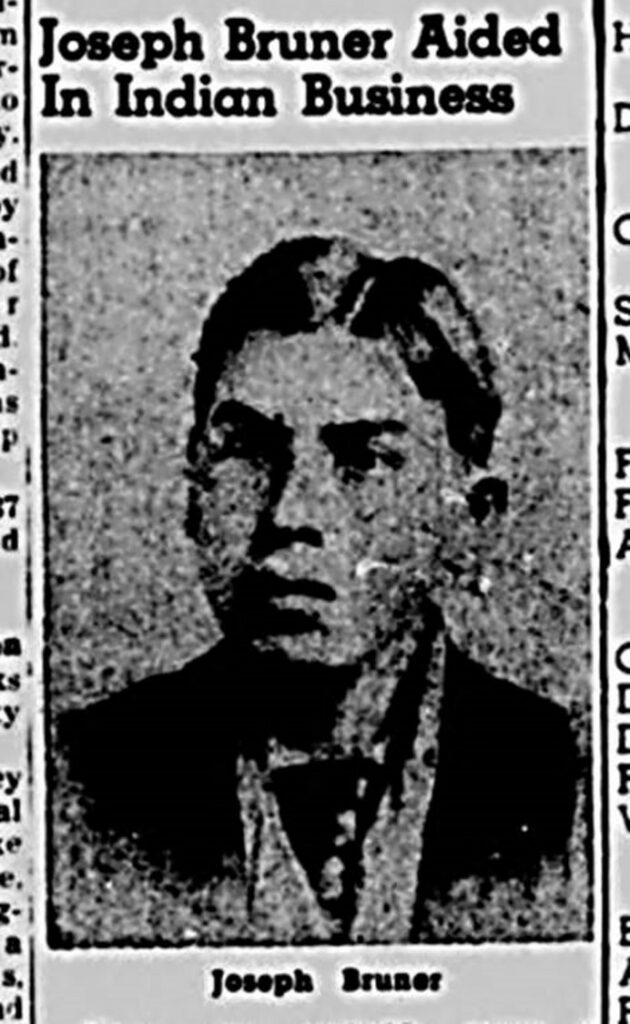
Joseph Bruner, son of Lucy and John, “has long been known as the first baby born in Tulsa.” He was born on September 20th, 1872, “on his father’s allotment which was about where 3rd Street viaduct crosses the Frisco tracks.”
Joseph, “Ark-Ta-Yah-Cho-Gee,” stated he did not know about his father’s family for many years. “I knew very little of my father’s people until 1898.” He met a former enslaved person, “named Payro,” where he learned of his father’s kin.
Payro “was a member from one of the three [black] towns of the Creek Nation. When he heard my name called, he came over and told me that he had been my grandfather’s slave and had come to this country with him. Payro said my grandfather’s name was George and that they had been landed people in Alabama.” Joseph’s great uncle, also named Joseph Bruner, was “first African-American to own land in Alabama and sold property that would become Talladega, AL.”
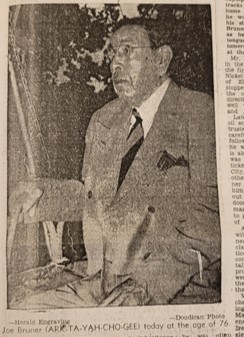
“When I was very young, my parents moved two and a half miles southwest of what is now Red Fork. They lived there until my father’s death when I was six years old, then my mother moved up to Rock Creek, six miles northwest of the present town of Sapulpa.”
Joseph further explained his relations to Sapulpa, himself, and his family. “We lived at what was called ‘Chissum’s Crossing’ on Rock Creek – this was the old mail route going northeast from the Sac and Fox Agency. It was at this time, about 1890, that mother married Timmie Fife.” But their marriage ended in divorce. Timmie Fife would remarry and be the husband of Sarah Sapulpa, “daughter of ‘old Sapulpa.’”
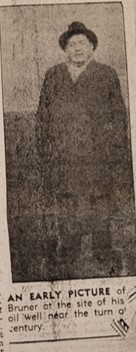
Joseph recalled his fondest memories of being connected to the Sapulpa family. “My greatest thrill as a boy was a memory of the man-hunt conducted by Old Tiger Bones, Timmie Fife, and Jim Sapulpa, in guiding United States soldiers to the hideout of a group of outlaw murderers.”
Joseph Bruner went on to school at Wealaka Mission from 1884 to 1888. For the next two years, he attended Baptist Indian University, now Bacone. From 1891 to 1892, he spent his time “as a cow-puncher on the Turkey Track Ranch. This ranch covered thousands of acres; it was a strip twenty miles wide, extending north from North Fork of the Canadian to the Cimarron. This was the Sac and Fox Territory; the present location of Cushing was our headquarters.”
The following year, in 1893, Joseph Bruner married Margaret “Maggie” Dart of Kansas. They had one daughter, Josephine “Lo-Cho-Chee meaning ‘Little Turtle,’” born on August 7, 1901. Josephine received her education at the Euchee Mission School in Sapulpa, and received a Bachelor’s Degree in music at University of Tulsa. She went on to receive her Master’s from Northwestern University of Chicago, and her Doctorate in Germany. Josephine would marry Anthony Baltese, a Pottawatomie, on November 27, 1930.

Joseph had “lived in Sapulpa since the early [1890s], being a young man, one of the pioneer residents of the city, and had been a participant as a businessman in its remarkable growth since the inauguration of the great oil and gas industries.” His first job in Sapulpa was in the H.C. Hall Store, the first store in Sapulpa, north of the Frisco tracks. “Later, he worked for Mr. Menifee in his store on Main Street. He was in high demand as a clerk as he could speak Native language and most of the customers did not speak English at the time.”
Joseph would also work in real estate. He made an office at the Farmers and Merchants Bank, on the northwest corner of Main St and Dewey Ave (now known as the Young Building).
“Since my marriage, I have lived the greater part of the time on the old Bruner allotment on Rock Creek, where my mother lived. I was elected a member of the House of Kings from Lucha-po-ga town and since that time until present have been a member of the House of Warriors.*”
*Note: Joseph Bruner was a member of the House of Kings from 1898 to 1900. This interview was on February 28, 1938.
“The need of an Indian Federation was seen by Mr. Bruner a long time ago when Collier became head of the Indian Affairs and the Oklahoma Indians did not feel they were given fair treatment. On June 8, 1934, The American Indian Federation, a national group, was organized.”
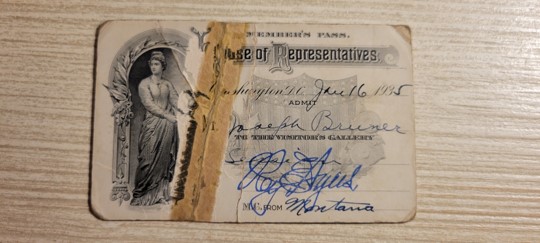

“The American Indian Federation (AIF) grew from the Oklahoma-based Indian National Confederacy. Although it was a national organization,” many “Oklahomans dominated the federation and its leadership. The AIF had three goals: to repeal the Indian Reorganization Act, to remove Indian Commissioner John Collier, and to abolish the Bureau of Indian Affairs. The AIF believed that the government should consider American Indians to be U.S. citizens, rather than Indians, and consider them subject to all state and federal laws without BIA supervision.”
Joseph Bruner was elected the first president of the organization. He held the office for another decade. The organization “was to be an educational, non-partisan, non-sectarian organization, hoping to bring fair treatment and economic justice between the Indians and the United States government.”

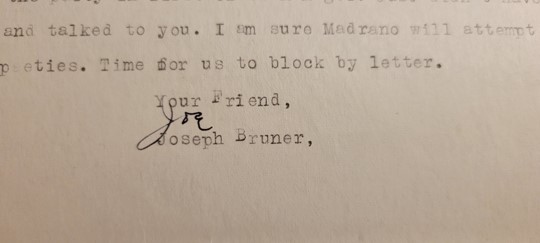
Joseph worked in Washington, D.C. and made his headquarters in Sapulpa. “He made many trips to Washington D.C. to intercede for the Indains and talk for their welfare.”
“By 1940 the group focused on its proposed Settlement Bill, which would have exempted some four thousand AIF members from BIA supervision for a final settlement of all claims against the government. This bill divided the AIF, causing several of its non-Oklahoman members to resign. The legacy of the AIF is difficult to assess. On one hand, it never achieved its goals; however, it kept Collier distracted by congressional hearings.
“The AIF was important because it was an early American Indian lobbying group that Anglos did not dominate. Some scholars credit the AIF with suggesting the tribal termination policy of the 1950s. It is clear that certain members of Congress respected the opinions of the AIF and gave them an audience on Capitol Hill. Protests by Bruner and other AIF members led to the exemption of Oklahoma tribes from the Indian Reorganization Act and the passage of the 1936 Oklahoma Indian Welfare Act. AIF activities disrupted Collier’s plans for reform and forced him to defend his policies.”
In Joseph Bruner’s obituary, it states, “Mr. Bruner had lived on a farm north of Sapulpa many years. His wife, Margaret, died in 1942. Their only daughter, Josephine, an accomplished pianist and organist, is the wife of Anthony Battese, an administrative assistant at the Navajo Reservation.”
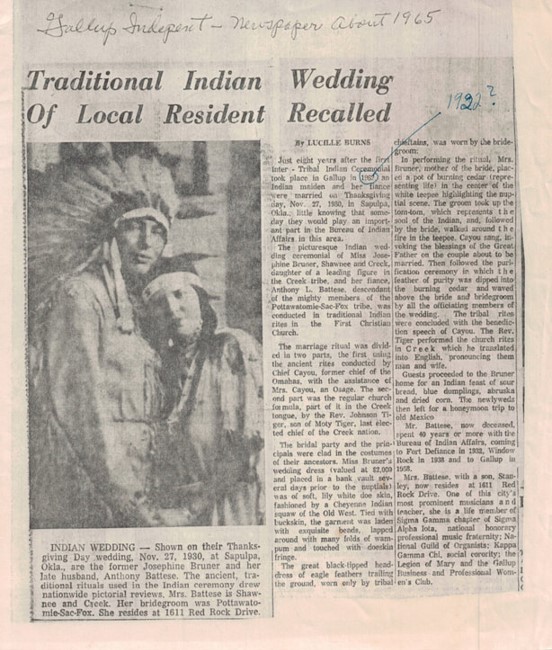
Joseph Bruner died at the age of 84 in the Claremore Hospital on January 13, 1957.
(Sapulpa Herald, December 7, 1946, June 26, 1949; Tulsa Tribune, January 14, 1957; Daily Home, February 27, 2017; American Indian Federation; Bacone College; University of Oklahoma Interviews, February 28, 1938; History of the State of Oklahoma, Volume II; Wikipedia; University of Little Rock; Oklahoma Historical Society)






